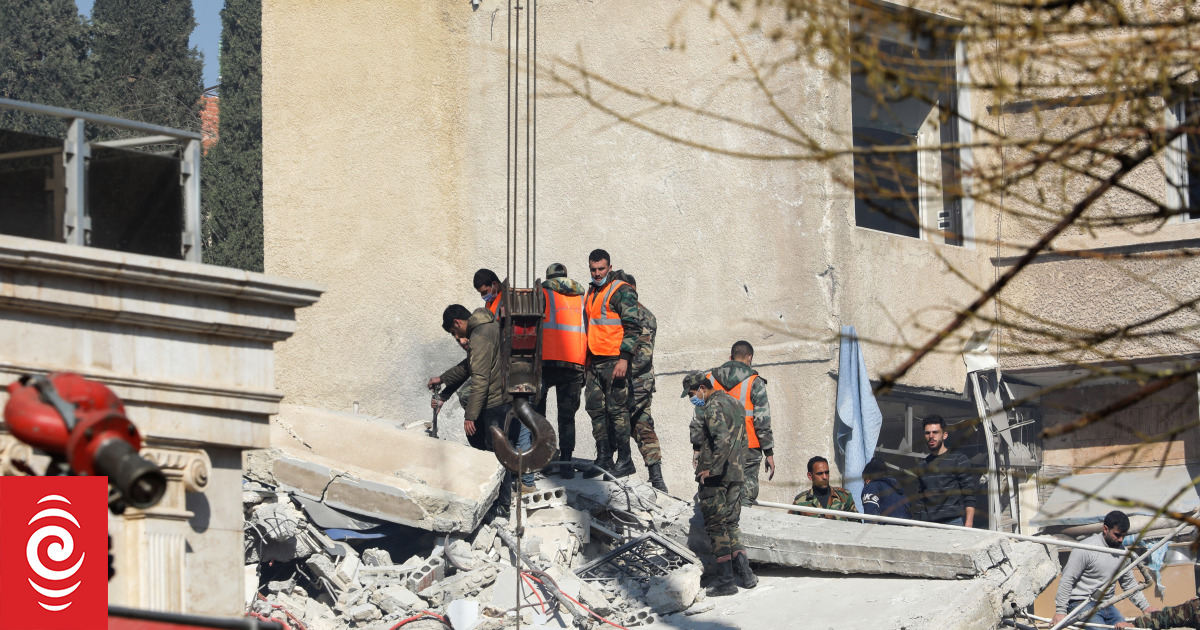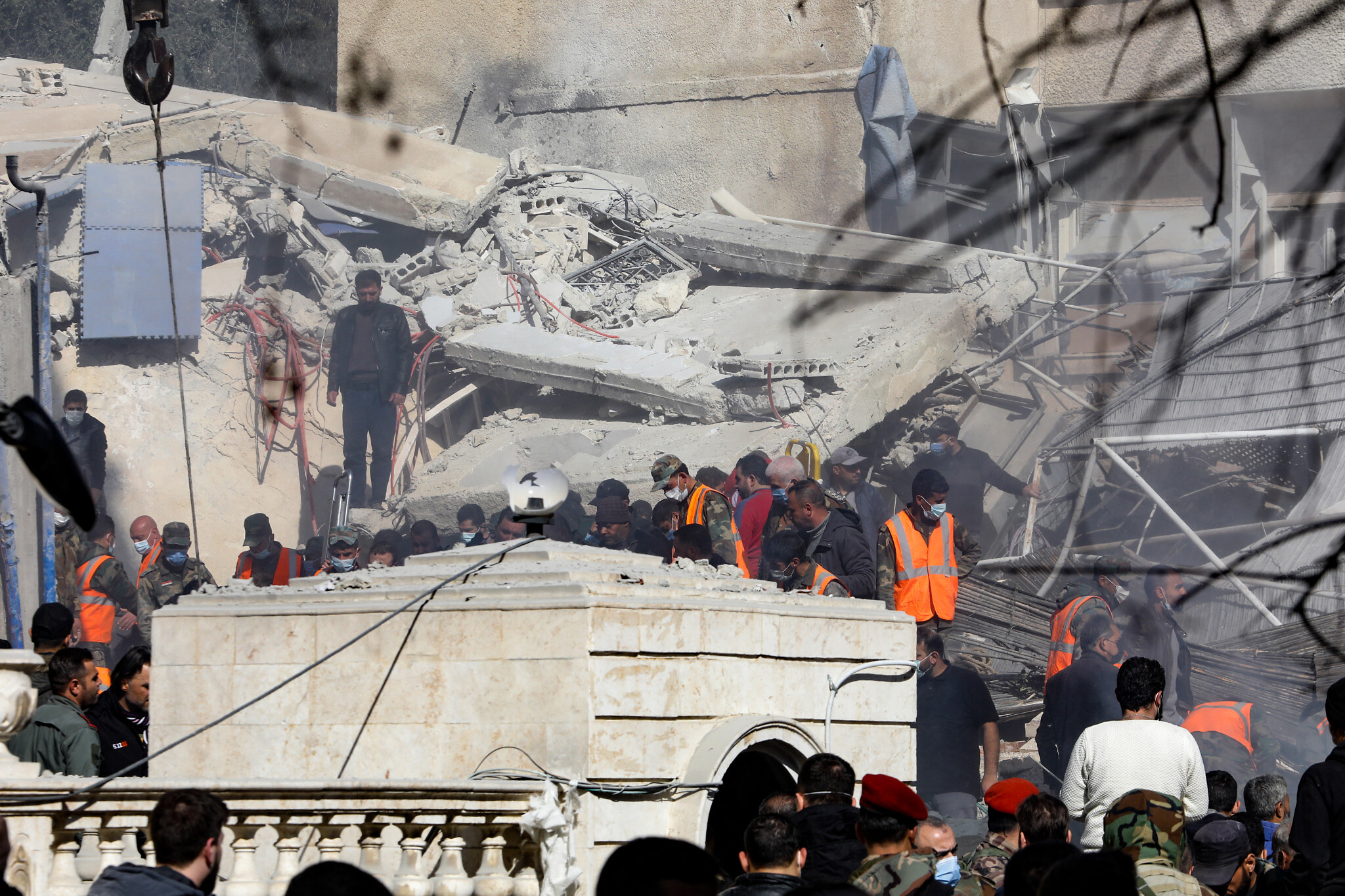Iran Vows Revenge For Damascus Attack That Kills 5 Revolutionary Guards
In a recent development, Iran has accused Israel of carrying out a strike in Damascus that resulted in the death of five members of the Revolutionary Guards. Iran vows revenge for Damascus attack on its personnel abroad by Israel.
Author:Suleman ShahReviewer:Han JuJan 22, 20242.8K Shares165.5K Views

In a recent development, Iran has accused Israel of carrying out a strike in Damascus that resulted in the death of five members of the Revolutionary Guards. Iran vows revenge for Damascus attackon its personnel abroad by Israel.
The conflict escalates amid accusations of Israel targeting senior Iranian and allied figures in Syria and Lebanon, supporters of the Hamas terror group. Concerns rise over the potential expansion of the Gaza conflict throughout the region. The Islamic Revolutionary Guard Corps (IRGC) has confirmed the loss of five members in the strike, attributing the incident to Israel.
Iran Vows Revenge For Damascus Attack

In a retaliatory move, Tehran has pledged to carry out revenge attacks against Israel after a missile strike obliterated a building used as a base for Iran's elite Revolutionary Guards in Damascus. The targeted strike resulted in the tragic loss of five Guards and an undisclosed number of Syrian troops.
The building, reportedly utilized by Iranian advisers supporting President Bashar al-Assad's government, was reduced to rubble by what sources describe as "precision-targeted Israeli missiles." Ambulances and fire trucks converged on the site, where rescue operations persisted throughout the day, aiming to extricate individuals trapped under the wreckage. A crane was deployed to lift concrete slabs off the devastated structure.
The Guards confirmed the deaths of five Iranians without specifying their ranks, while a security source revealed that one of the deceased was responsible for overseeing the elite force's information unit. The Syrian military also suffered casualties in the strike.
Israel, known for its covert military operations against Iran's presence in Syria, has not issued any official comment. The country has intensified its bombing campaign, particularly in response to the October 7 attack on Israel by Hamas militants, supported by Iran, from Gaza.
Iran's Foreign Ministry spokesperson, Nasser Kanaani, condemned the strike as a "desperate attempt to spread instability in the region." Kanaani affirmed Iran's right to respond to what he termed the "organized terrorism of the fake Zionist regime" at an appropriate time and place.
Syrian state media reported the Israeli attack as an "aerial assault" on a building in the Mazzeh neighborhood of Damascus, claiming that Syrian air defenses successfully intercepted several missiles. Essam Al-Amin, head of Al-Mowasat Hospital in Damascus, confirmed one fatality and three wounded individuals, including a woman, admitted following the attack.
This incident follows a pattern of heightened tensions in the region, with Israel responding aggressively to threats and attacks. The recent Israeli strike in south Lebanon resulted in casualties, further escalating hostilities and underscoring the interconnectedness of conflicts across the Middle East. The situation remains fluid, with concerns growing over the potential for broader regional instability.
Conclusion
As tensions escalated, Iran, on January 20, formally accused Israel of conducting a strike in Damascus, resulting in the tragic loss of five members of the Revolutionary Guards. President Ebrahim Raisi, in a stern response, declared that Tehran would not allow the "cowardly assassination" to go unanswered.
Israel, already under scrutiny, faces allegations of increasing strikes targeting high-ranking Iranian and allied figures in Syria and Lebanon, particularly those supporting the Palestinian militant group Hamas. The fears of the Gaza conflict expanding further throughout the region persist.
The Islamic Revolutionary Guard Corps (IRGC) confirmed the death of its five members in the strike, squarely placing the blame on Israel, its regional arch-foe. The situation remains tense, with President Raisi's vow to avenge the attack adding an ominous layer to the already strained relations between the two nations.

Suleman Shah
Author
Suleman Shah is a researcher and freelance writer. As a researcher, he has worked with MNS University of Agriculture, Multan (Pakistan) and Texas A & M University (USA). He regularly writes science articles and blogs for science news website immersse.com and open access publishers OA Publishing London and Scientific Times. He loves to keep himself updated on scientific developments and convert these developments into everyday language to update the readers about the developments in the scientific era. His primary research focus is Plant sciences, and he contributed to this field by publishing his research in scientific journals and presenting his work at many Conferences.
Shah graduated from the University of Agriculture Faisalabad (Pakistan) and started his professional carrier with Jaffer Agro Services and later with the Agriculture Department of the Government of Pakistan. His research interest compelled and attracted him to proceed with his carrier in Plant sciences research. So, he started his Ph.D. in Soil Science at MNS University of Agriculture Multan (Pakistan). Later, he started working as a visiting scholar with Texas A&M University (USA).
Shah’s experience with big Open Excess publishers like Springers, Frontiers, MDPI, etc., testified to his belief in Open Access as a barrier-removing mechanism between researchers and the readers of their research. Shah believes that Open Access is revolutionizing the publication process and benefitting research in all fields.

Han Ju
Reviewer
Hello! I'm Han Ju, the heart behind World Wide Journals. My life is a unique tapestry woven from the threads of news, spirituality, and science, enriched by melodies from my guitar. Raised amidst tales of the ancient and the arcane, I developed a keen eye for the stories that truly matter. Through my work, I seek to bridge the seen with the unseen, marrying the rigor of science with the depth of spirituality.
Each article at World Wide Journals is a piece of this ongoing quest, blending analysis with personal reflection. Whether exploring quantum frontiers or strumming chords under the stars, my aim is to inspire and provoke thought, inviting you into a world where every discovery is a note in the grand symphony of existence.
Welcome aboard this journey of insight and exploration, where curiosity leads and music guides.
Latest Articles
Popular Articles